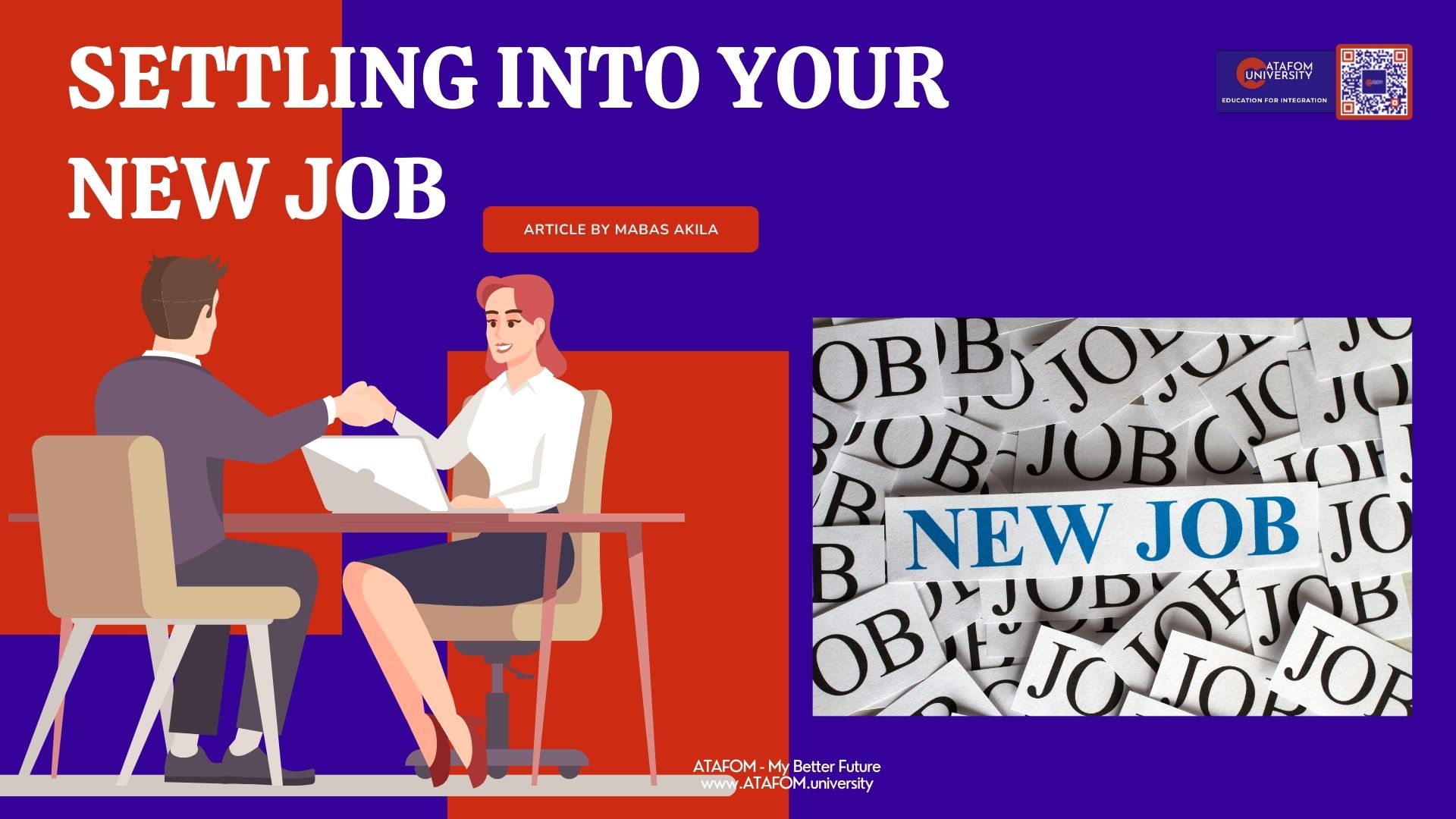Congratulations for securing that new position – that dream job you ever wanted to have! After months and probably years of job hunt – combing all available job sites, dropping applications and CVs for employers to find, enrolling in one short course or the other to be prepared for any roles – the final news has arrived and your first day at work awaits you!
Perhaps, it is your first role or you are changing a job. It doesn’t matter because the work environment will differ tremendously from what you have been used to. While some organisations will give you all the help you need to fully settle down in the job as is the case with ATAFOM University International, others do not have the luxury of doing that. As it is often said, “A new job is like a blank book and you are the author”. These scenarios
notwithstanding, we provide in this article with requisite nuggets to get you rightfully grounded as you begin to write your role at any given organisation. Have a happy read:
Move slowly at the beginning but faster when you fully settle
Perhaps, this is the most important part of your task. For most people, there is always the anxiety and enthusiasm accompanying securing a job – you want to hit the ground running and find the solution to that hydra-headed problematique of a Dracula. But this will be a wrong move; pause and understand that you came to solve a problem, yes, but there were others who identified the problem long before you came – wait for them to show you how to go about it. It will be expected that once you slowly find your way, you can move as fast as you can because your boss will grow impatient with your adaptability if you continue in a snail speed motion.
Observe your organisation’s mode of operation
The first point above may be the most important but this second point is the first thing to do. As a first timer, on an unpopular terrain, it would be highly profitable if you study the mode of operation and behaviour of your colleagues. The benefits are enormous: you will avoid a lot of pitfalls and understand how to get things done with whom, where, when and how. For example, it would be great to observe the chain of command or how the organisation responds to new ideas and change.
See everyone as a friend and define their strengths
It would make for great negativity if you step into an organisation and see everyone as a potential enemy or judge them based on your past experiences in your previous place(s) of work. Granted that the work place is one breeding space for enmity and envy but it wouldn’t bite to enjoy the freedom of humanity by giving people the benefit of doubt to prove you wrong. It would be bad to isolate yourself as much as it would be if you try to impose yourself as well. Gaining new friends is important and you do not do that by withdrawing or inserting yourself in the wrong holes. Making friends with everyone does not also mean selling ice cream – you do not have to smile with everyone as a newbie at work. You may define your boundaries and respectively disagree or decline contrary viewpoints but never pick a fight! It is unnecessary at the early stages of your work life cycle in a new terrain.
Subject yourself to be taught
When you acquire a new job and you find yourself believing you know it all, just know you are getting closer to the grave; as Albert Einstein said “when you stop learning, you start dying.” Opening our minds to new things makes us productive and relevant. It is not okay to believe you have attained the highest level of knowledge or that you are above certain persons you perceive as less experienced than you. Learning is a factor of humility and the least of us all can teach the best of us all. Just be open minded even if your new role means you are the boss or your brain tells you no one does the job better than you or your employer whispers to you that you were hired to change everything.
Be mindful of how you dress and address
A good first impression at work is important and often, we give that by our appearance as much as we do with our words. You do not have to show everyone how badly you need the job by dressing casually to work and then changing after some months of pay. The little you have can be used very smartly – the way you combine clothes matter more than how much of them you have. More so, always wear clean clothes with a good perfume to accompany it, a good pair of shoes for all seasons and do not forget to press your clothes as well. You will win the hearts of your colleague and they will see you as a good addition to their ranks and not some weird nerd to add to their worries.
If you have gone months on your job and look back to find out that you have done all these points, I am sure you will give a thumbs up for this article. See you next time!


